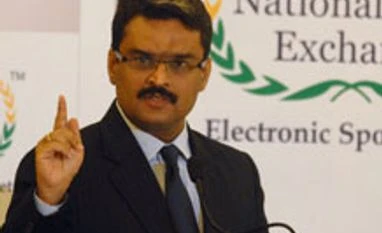For Shah, overseas exchanges were a big bet as they were perceived to be operating in bureaucratic hurdle free markets and were seen as a hedge against domestic business.
Out of the five exchanges Financial Technologies (FT) set up globally, Bourse Africa based in Johannesburg, South Africa is yet to start trading despite being set up almost four years ago.
Also Read
“We are currently conducting a in-depth study of the market; i.e. the African continent and the right kind of products that would cater to the needs of the market. Only after the research is completed, will the Exchange commence operations,” said a spokesperson of the exchange.
The FT group also has run into a dispute with the majority shareholders of its Dubai-based exchange DGCX. Singapore based, Singapore Mercantile Exchange Pte Ltd (SMX) has seen a sharp fall in volumes in last few months following the NSEL crisis and volumes on Bahrain Financial Exchange (BFX) based at Manama, Kingdom of Bahrain have almost been wiped out. The Global Board of Trade (GBoT), based at Mauritius, has seen a 20% fall in its volumes.
While the NSEL crisis broke out in July, Shah's problems started even earlier in April when the Reserve Bank of India issued a circular asking Indian companies investing overseas under direct investment route to take its permission to launch products/services based on Indian currencies. This took a toll on Indian rupee/US Dollar futures on BFX. In April, 762 lots were traded on BFX and it has phased out to almost nil now.
However, the FTIL spokeperson said, “exchanges all over the world take on average 5 to 7 years after commencement of operations to stabilise and bring in liquidity. A case in point is DGCX, which took 7 years to become what it is today. Indian exchanges too have a gestation period of about 5 to 7 years to bring in liquidity and many exchanges in various asset classes are still to attain volumes and desired liquidity. Moreover, as these ventures are about 2 to 3 years old in production, they will take some time to stabilise.”
While MCX as a commodity futures exchange gained market share after couple of years of operations, several other commodity exchanges are far behind it in penetrating the vast market. There are talks of consolidation in the commodity exchange industry.
Big problem for FT is DGCX where the majority partner Dubai Multi Commodities Centre (DMCC), a strategic initiative of the Government of Dubai, replaced all FTIL Group supplied Trading and Clearing technology with a new system ‘EOS’ supplied by Cinnober. It even launched futures trading in FT group’s Indian stock market rival BSE’s benchmark index S&P Sensex.
If that is not enough, last month the DGCX floated a right issue, which the FT group didn’t subscribe due to issues at home. Because of that its total shareholding has come down from 44% to 30.95%. FT now holds 27.51% and MCX about 3.4%. FT spokesperson clarified that the reason for not subscribing to the right issue was because “it was not possible to obtain regulatory approval within 10 days of time.”
For the FT group, the significance of the DGCX is that the volumes of the exchange are rising and in the last one year it has seen a jump of 80% in terms of lots traded, accodring to information on the DGCX website.
“Year-to-date volumes on the Dubai Gold and Commodities Exchange (DGCX) have surpassed the 10 million volume mark for the first time in the Exchange’s history. The milestone, reached on August 23, was achieved in a total of 164 trading days. Total 2013 volumes stood at 10.37 million contracts at the end of August, a rise of 80% from the previous year," the exchange said in a press communique on 8 September.
After the NSEL controversy broke out, DGCX on 5 sept had distanced itself from the FT group’s controversy. FT Group is a minority shareholder of DGCX and no Director of the Exchange has any operational responsibility for the running of FT. There were reports earlier that FT group is also searching for buyers for its stake in DGCX. However, a spokesperson said that they cannot comment on market speculation.
With regard to the exchanges of the Financial Technologies Group, FTIL spokesperson clarified that, “all overseas exchanges are run professionally by their respective management teams under the regulatory supervision of varied world-class regulators and subject to different market conditions.”
FT also has to fill the post of a director in all the above five exchanges where Joseph Messy was on the board.
)